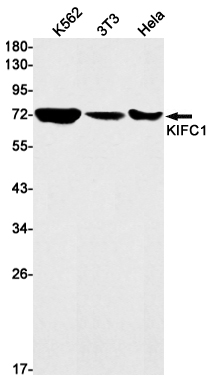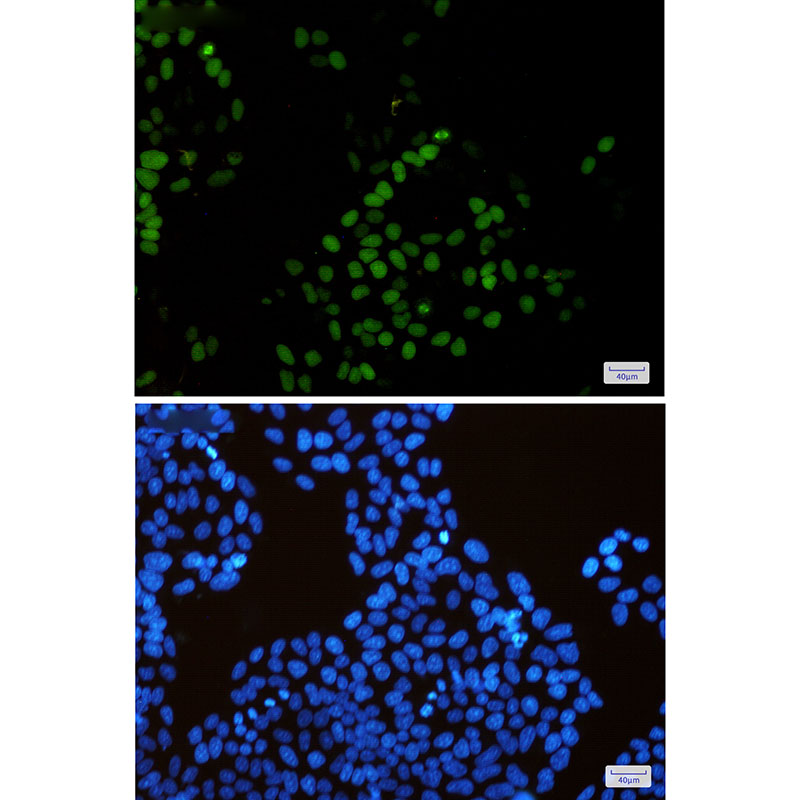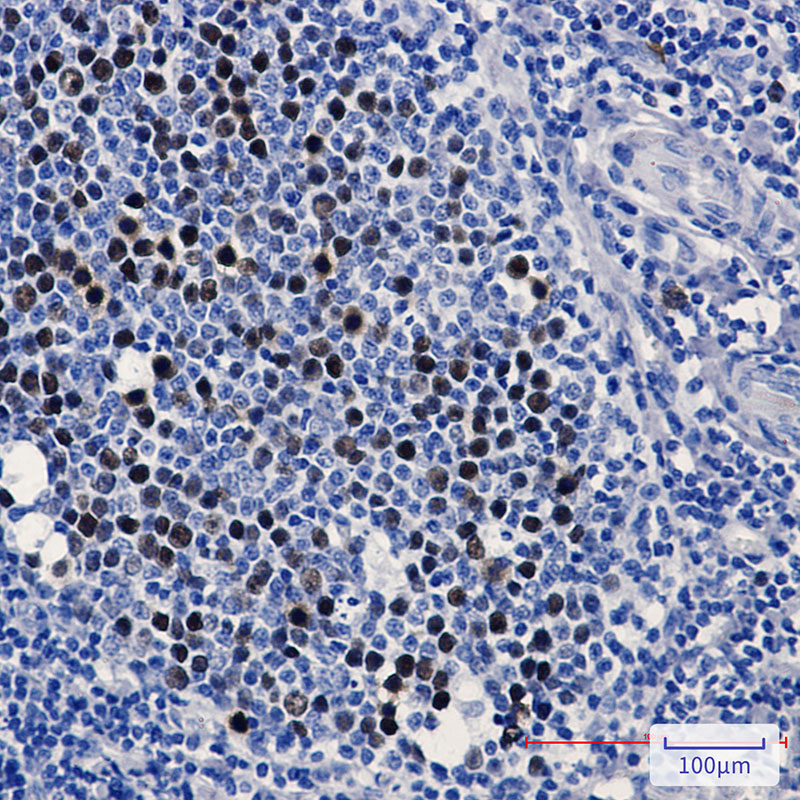


| WB | 1/500-1/1000 | Human,Mouse,Rat |
| IF | 1/20 | Human,Mouse,Rat |
| IHC | 1/50-1/100 | Human,Mouse,Rat |
| ICC | 1/50-1/200 | Human,Mouse,Rat |
| FCM | 咨询技术 | Human,Mouse,Rat |
| Elisa | 咨询技术 | Human,Mouse,Rat |
| Aliases | HSET; KNSL2 |
| Entrez GeneID | 3833 |
| WB Predicted band size | Calculated MW: 74 kDa; Observed MW: 74 kDa |
| Host/Isotype | Rabbit IgG |
| Antibody Type | Primary antibody |
| Storage | Store at 4°C short term. Aliquot and store at -20°C long term. Avoid freeze/thaw cycles. |
| Species Reactivity | Human,Mouse |
| Immunogen | A synthetic peptide of human KIFC1 |
| Formulation | Purified antibody in TBS with 0.05% sodium azide,0.05%BSA and 50% glycerol. |
+ +
以下是3篇关于KIFC1抗体的参考文献,信息已精简整理:
1. **文献名称**:*KIFC1 is a novel potential therapeutic target for breast cancer*
**作者**:Liu X et al.
**摘要**:研究利用KIFC1抗体通过免疫组化发现其在乳腺癌组织中高表达,且与肿瘤分级相关。抑制KIFC1可显著降低癌细胞增殖和迁移能力,提示其作为治疗靶点的潜力。
2. **文献名称**:*KIFC1 interacts with HER2 to promote cancer cell motility in ovarian cancer*
**作者**:Zhang Y et al.
**摘要**:通过Western blot和免疫共沉淀(使用KIFC1特异性抗体),揭示了KIFC1与HER2蛋白的相互作用机制,该通路促进卵巢癌细胞侵袭转移,为联合靶向治疗提供依据。
3. **文献名称**:*KIFC1 inhibition induces mitotic catastrophe in lung adenocarcinoma*
**作者**:Wang H et al.
**摘要**:研究采用KIFC1抗体进行免疫荧光染色,发现抑制KIFC1会导致肺癌细胞有丝分裂异常(多极纺锤体形成),最终引发细胞凋亡,表明靶向KIFC1可增强化疗敏感性。
如需具体文献来源(期刊、年份等),可进一步补充检索关键词或提供数据库访问权限。
KIFC1 (kinesin family member C1), also known as HSET, is a minus-end-directed microtubule motor protein belonging to the kinesin-14 family. It plays a critical role in centrosome clustering, a process vital for cell division in cancer cells with supernumerary centrosomes, enabling their survival by preventing multipolar mitosis. KIFC1 is overexpressed in various cancers, including breast, ovarian, and prostate cancers, and is associated with tumor progression, metastasis, and chemoresistance. Its role in maintaining genomic stability and supporting cancer cell proliferation makes it a potential therapeutic target.
KIFC1 antibodies are essential tools for studying its expression, localization, and function in both normal and pathological contexts. These antibodies are widely used in techniques like Western blotting, immunofluorescence, and immunohistochemistry to investigate KIFC1's involvement in cellular processes, such as mitotic regulation, acrosome formation in sperm, and oocyte maturation. Researchers also utilize KIFC1 antibodies to evaluate its role in cancer mechanisms and to screen inhibitors targeting its motor activity. Recent studies highlight its relevance in drug development, particularly in disrupting centrosome clustering to selectively kill cancer cells. Validated KIFC1 antibodies are crucial for ensuring specificity in experimental models, aiding translational research aimed at exploiting KIFC1 as a biomarker or therapeutic target.
×